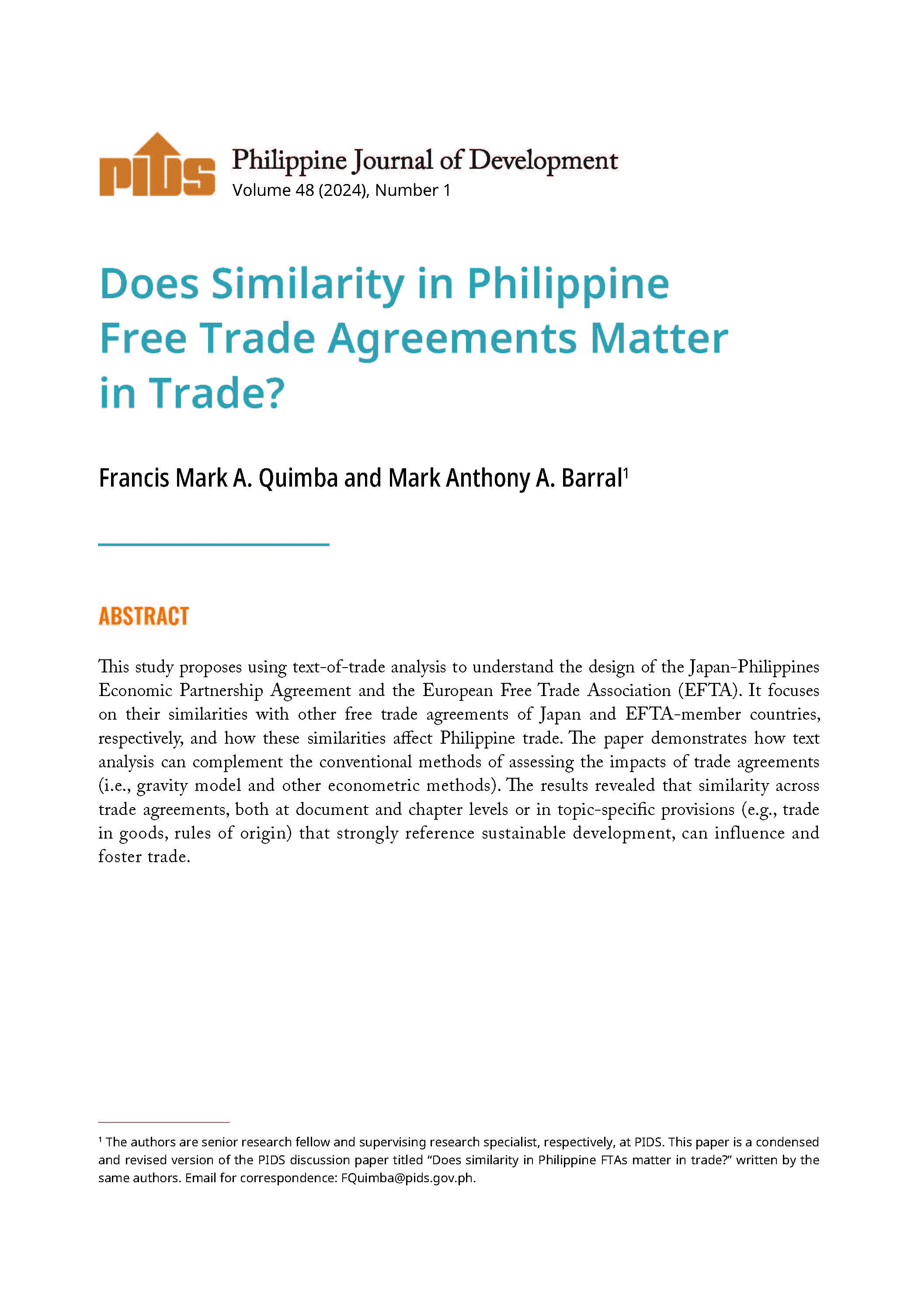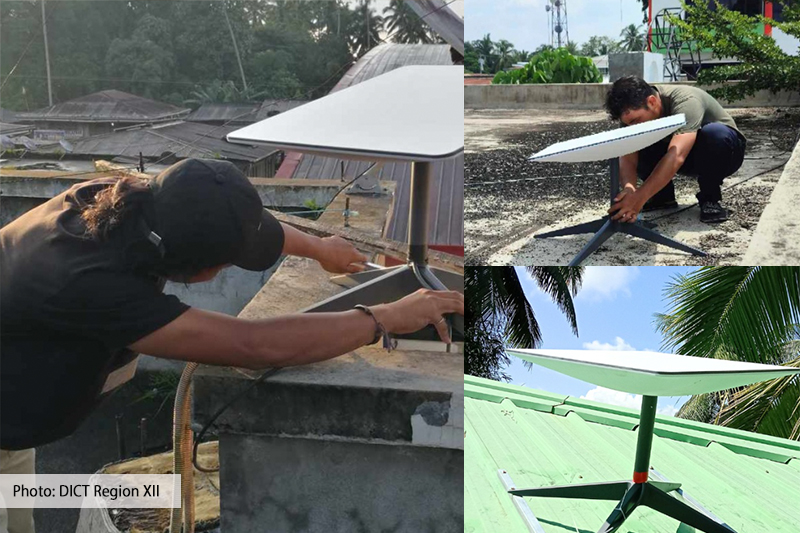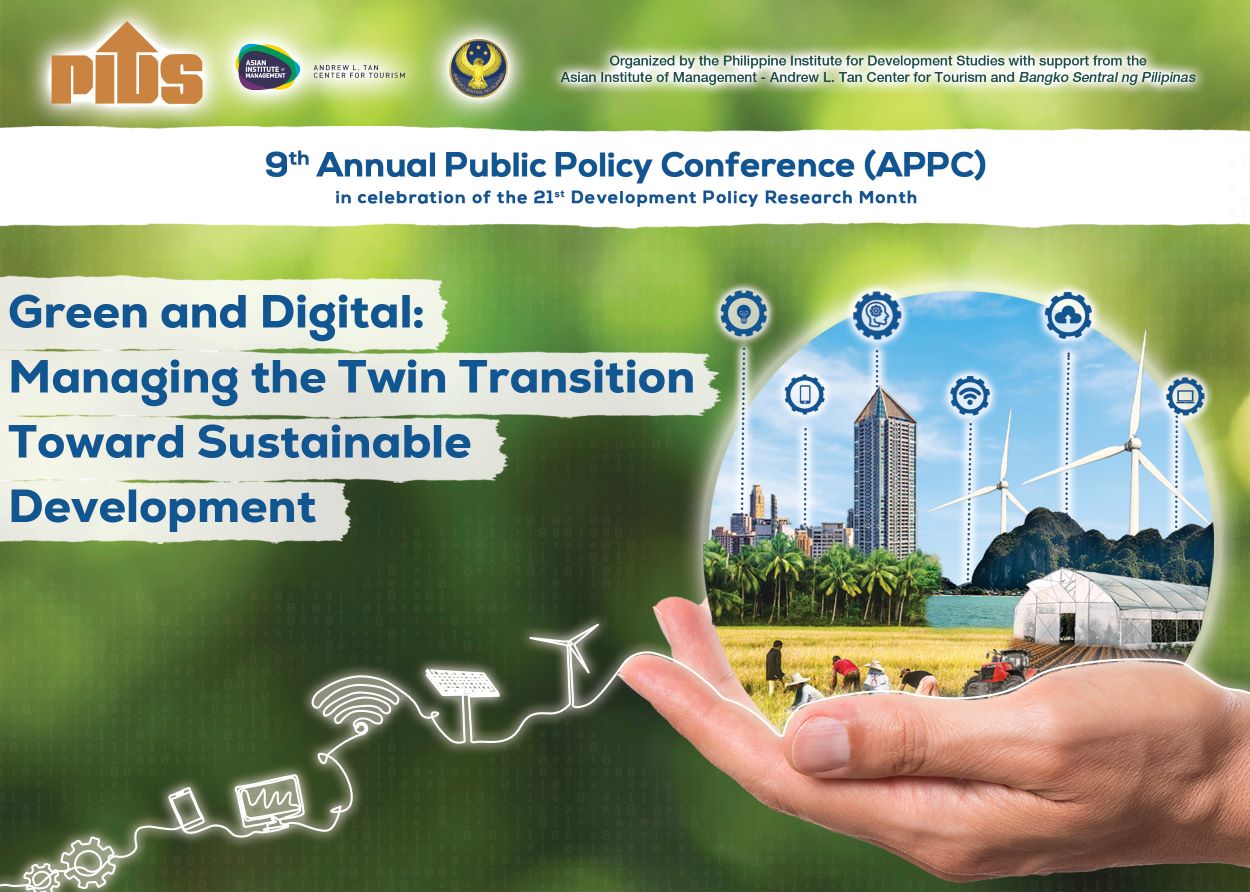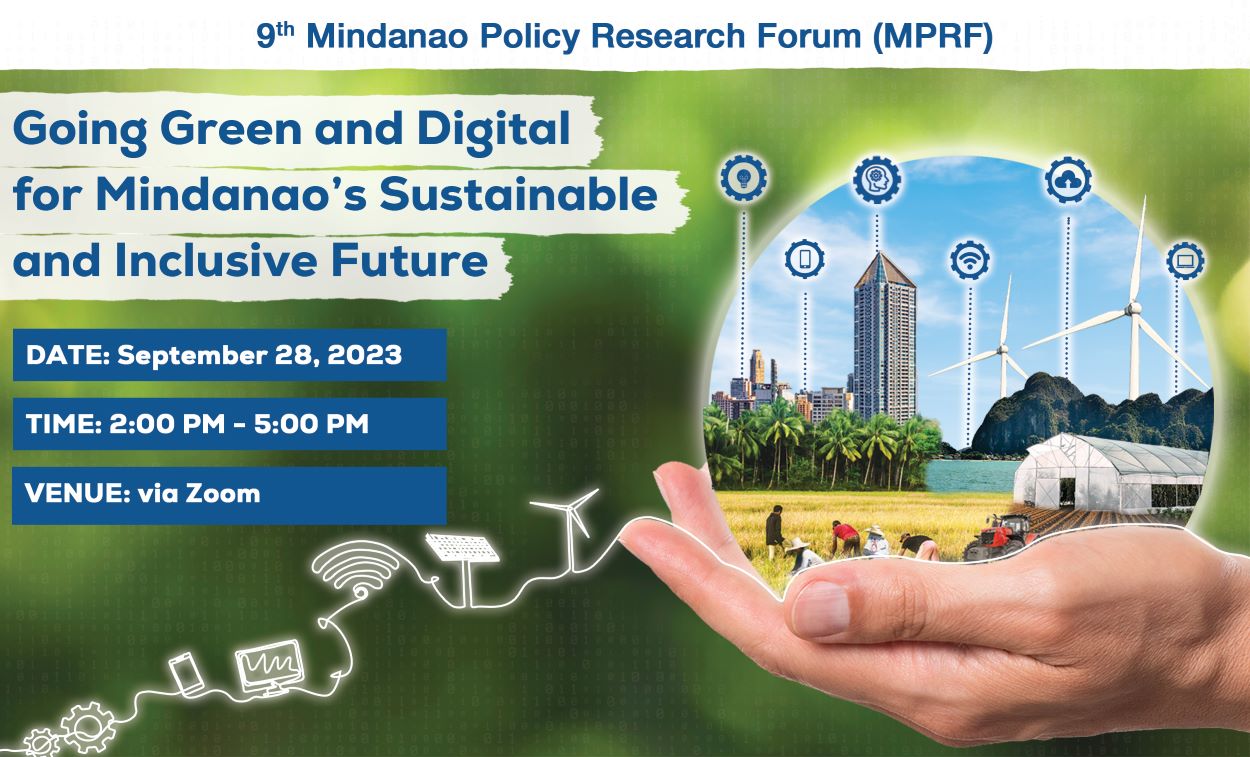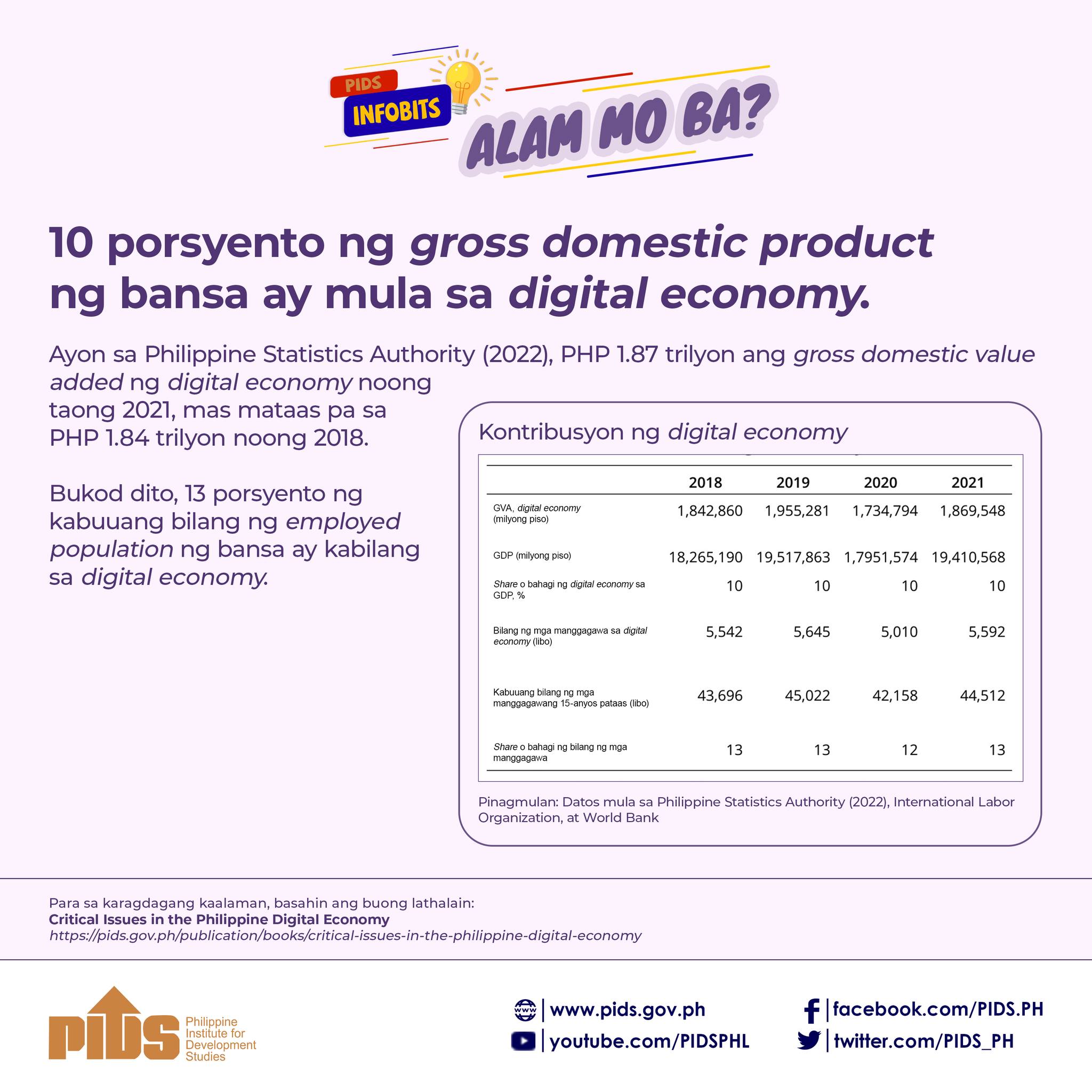DESPITE the gaps in digital trade, the Department of Trade and Industry (DTI) and the Philippine Institute for Development Studies (PIDS) believe the country is ready for digital trade integration with the Asia-Pacific region.
In a recent webinar hosted by the PIDS and United Nations Economic and Social Commission for Asia and the Pacific, DTI Assistant Secretary for Digital Philippines and E-commerce Lead Mary Jean Pacheco said the country is well-positioned in digital trade in the region.
Pacheco said the Philippine digital trade integration in the region would be fast-tracked given high market demand; increased private investments in telecommunications, e-commerce and digital payments; and government reforms.
“We are built for this [digital integration]. The Philippine market is a huge and fast-growing, predominantly young middle-class population, which uses the Internet the most. We have substantially digitalized small and medium enterprises that are known for resiliency and creativity,” Pacheco said.
Ban on aliens a challenge
In a study, a research team from PIDS led by Senior Research Fellow Francis Mark A. Quimba found that banning foreign firms on some electronic commerce and electronic retailing is a major challenge to the Philippines’s digital trade integration with the Asia-Pacific.
This is significantly felt by retail trade enterprises with paid-up capital of less than $2.5 million since this sector is prohibited from having any foreign equity.
“Electronic commerce represents an important part of digital trade, which means that bans on foreign investment can impede the digital economy’s growth, thereby making digital trade integration difficult,” the researchers said.
The PIDS said the Philippines also implemented policies that discourage foreign bidders from participating in public procurement. While foreign players are allowed, their participation is “either highly restrictive or discouraging.”
The researchers said one example is requiring foreign consultants to transfer their technology and knowledge in order to be hired under public procurement.
Further, they said foreign bidders also participate at a disadvantage because of domestic preference and foreign equity restrictions. “This suggests that public procurement for digital goods and services are skewed towards domestic bidders, which may have an adverse effect on competition,” they added.
In addition, the researchers said restrictions in the Philippine telecommunications sector prevent foreign firms from growing. This, they said, undermines the growth of the digital economy.
These restrictions include the need for telecommunication entities to secure a legislative franchise from Congress and a Certificate of Public Convenience and Necessity from the National Telecommunications Commission before they are allowed to operate.
“The telecommunications sector serves as the bedrock of the digital economy, so the sector’s performance affects multiple industries. Despite the telecommunications sector already having been deregulated in 1995, barriers to entry form an ill-conducive environment for the sector’s growth,” the PIDS researchers said.
Meanwhile, the DTI official stressed the importance of an “all of e-government approach,” where various government agencies have their initiatives to push for digitalization in the country.
She said that “agencies shall continue to exercise their mandates under the law, but with a shared vision and goal to ensure the growth of e-commerce.”
Another priority of the government, according to Pacheco, is investing in human capital, particularly on digital skills, saying that “digitalization of human capital is critical” in the country’s digital transformation.
Pacheco also stressed the importance of supporting start-ups in the country, noting that “funding support is needed to help innovators expand and gain more traction.” She said the funding for e-commerce innovation and technology investment is included in the road map.
“Both the legislative and executive branches of the government have formulated policies to address access to reliable, stable, and fast Internet services. [The] government [also] made [the issuance of permits and licenses to] telecommunication towers easier,” Pacheco explained.
Earlier this year, the DTI launched the E-commerce Philippine 2022 Road map, which highlights the accessibility and convenience of e-commerce.
Through the roadmap, Pacheco said the country hopes to have a million e-commerce enterprises from the estimated 500,000 enterprises in 2020.
In terms of infrastructure, Pacheco noted the importance of Internet connectivity in promoting digital transformation within the government.
PHL ready for regional integration despite gaps in digital trade


